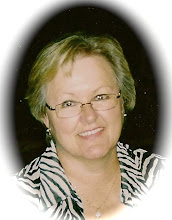I did a lesson review of chapter 15 of Napoleon Hill’s book Think and Grow Rich for a mentorship group which I am part of and I wanted to share it with you because I think it has such widespread application today.
Hill lists the symptoms of the fear of poverty: indifference, indecision, doubt, worry, over-caution and procrastination. If I had to pick my greatest fault here it would be procrastination. This is symptom of the fear of poverty. If I truly believed with all my being in the success of my endeavor, whatever it is, would I hesitate about giving it everything I had? No I would not. And how we do one thing in life is how we do all things in life. Therefore, I have to assume that my procrastination in many areas of my life means there is fear behind it. This is where self talk and affirmations and turning off the TV come into play. We need to remove ourselves from the constant negative bombardment and the selling of fear on TV.
Hill addresses his critics who ask why he is always talking about money. I love this passage by Westbrook Pegler which Hill quotes: "money is only clam shells or metal discs or scraps of paper, and there are treasures of the heart and soul which money cannot buy, but most people, being broke, are unable to keep this in mind and sustain their spirits. When a man is down and out and on the street, unable to get any job at all, something happens to his spirit which can be observed in the droop of his shoulders, the set of his hat, his walk and his gaze. He cannot escape a feeling of inferiority among people with regular employment, even though he knows they are definitely not is equals in character, intelligence or ability...." There is so much warning for us in these times. We need to believe in ourselves and our power to change our circumstances by hard work and thought control.
Worry is a state of mind based upon fear. It is slow but insidious. Hill says "Worry is a form of sustained fear caused by indecision; therefore it is a state of mind which can be controlled... We do not worry over conditions, once we have reached a decision to follow a definite line of action... Kill the habit of worry, in all its forms, by reaching a general blanket decision that nothing which life has to offer is worth the price of worry."
Once we have made this decision we will have poise, peace of mind and calmness. I have found this to be very true. When you are able to let go of the worry it is as if a 1000 pound weight has been lifted off your shoulders. So, let’s all focus on possibilities and make a firm decision to believe in our future.
Debby Riddick
http://Squidoo.com/DRiddick

No comments:
Post a Comment